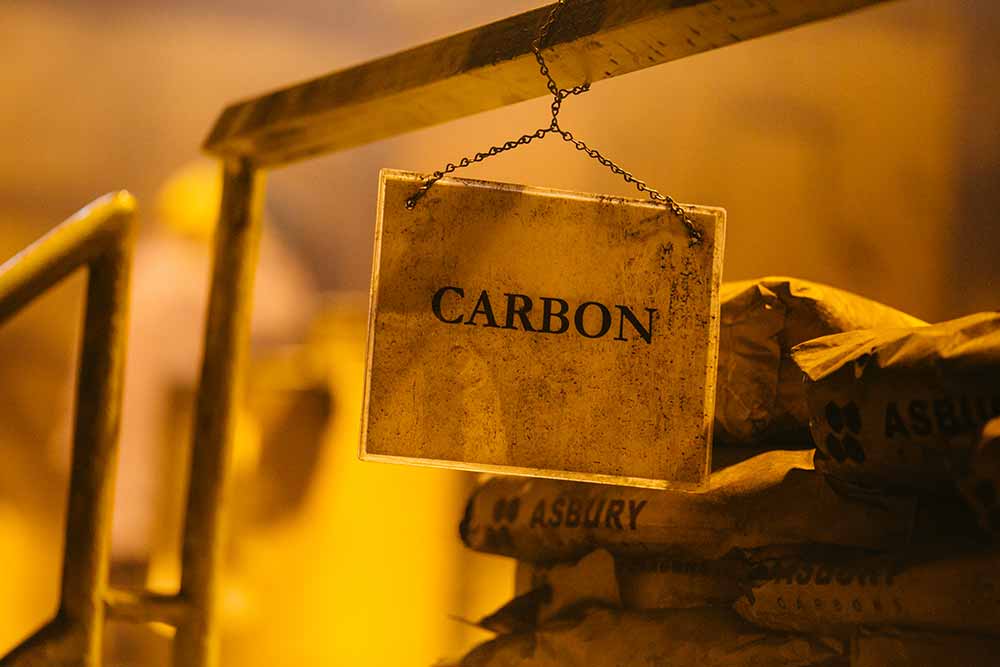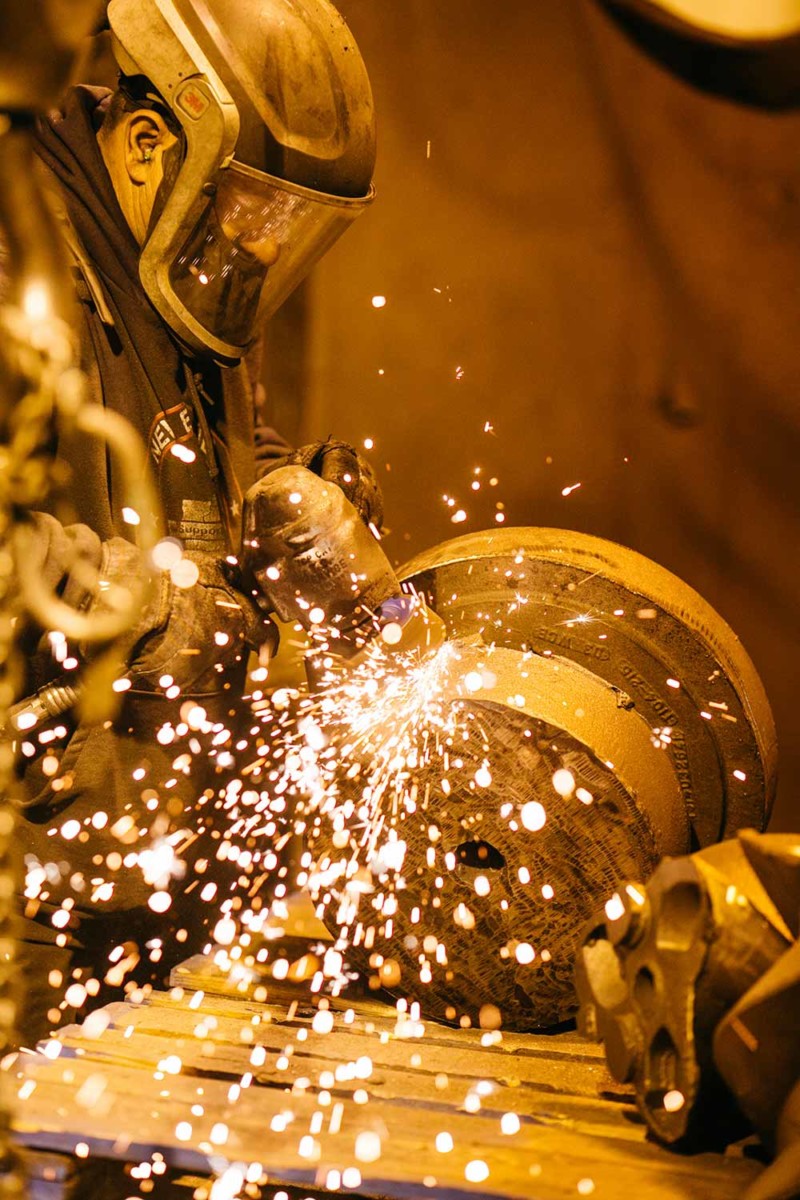Steel Casting Foundry
The Taylor & Fenn Company is a steel casting foundry that sets the industry standard for steel casting and stainless steel casting with reliable delivery in only five weeks.
Our 180,000-square-foot foundry located in Windsor, CT, is fully equipped to handle components from 1–6,000 lbs. We specialize in casting custom, low-volume components using green sand or chemically bonded sand in flaskless, no bake molds. We utilize patterns provided by clients and can also develop them in-house for a streamlined production process that yields reliable results.

Carbon Steel Casting and Stainless Steel Casting
Cast steel is a ferrous alloy that can be produced with a wide range of interrelated properties. The attributes of cast steel can be altered by adjusting the chemical composition of the metal and/or applying heat treatments. The properties of the steel casting can be selected and engineered to match the performance requirements of the intended use.
Physical Properties of Cast Steel
| Strength | The force that must be applied to deform a material. The strength of cast steel is determined by its carbon content. |
| Hardness | The measure of a material’s ability to withstand abrasion. The hardness of cast steel is determined by its carbon content. |
| Toughness | The measure of a material’s ability to withstand stress. Ductility and toughness are related, as higher ductility will increase toughness. Toughness can be increased by adding alloying metals or with the use of heat treatments. |
| Wear Resistance | The ability of a surface or material to resist damage by friction or use. Cast steel exhibits wear resistance equivalent to wrought steels of similar composition. Additional alloying elements can dramatically increase the wear resistance of cast steel. |
| Corrosion Resistance | The ability of a surface or material (particularly in metals) to withstand damage caused by oxidization or other chemical reactions. Cast steel and wrought steel exhibit similar corrosion resistance. High-alloy steels with chromium and nickel have much higher corrosion resistance. |
| High Temperature Properties | Prolonged exposure to temperatures well above ambient will cause degradation to the mechanical properties of steel in the form of oxidation, sulfite scaling, carbide instability and hydrogen damage. |
| Low Temperature Properties | Prolonged exposure to low temperatures will affect the toughness of cast steel. The addition of alloying elements and/or heat treatments can improve cast steel’s resistance to extremely cold environments. |
| Ductility | A material’s ability to deform under tensile stress. Cast steel with a lower carbon content will demonstrate less hardness and higher ductility. |
| Machinability | The ease with which a metal can be machined (cutting, grinding, drilling, etc.) permitting the removal of the material to achieve a desired finish or shape. Highly machinable cast steel is easy and cost-effective to produce. Machinability is directly related to hardness. |
| Weldability | A material’s ability to be welded without defects. It is dependent on the chemical composition and applied heat treatments. |
Our experienced molders, melters, and pourers are supported by a trained staff of metallurgists. We can help you determine the ideal chemical composition and grade of steel to achieve the desired properties for your component based on how and where the component will be used. We work with more than 100 different grades of metal, including carbon steel and stainless steel, and have the ability to apply heat treatments when necessary.
Testing and Quality Inspection
Adding alloying elements is a common way of dramatically affecting the physical and mechanical properties of cast steel. Chemical analyses are necessary to verify the exact composition of steel before it is cast. These analyses help us achieve the desired physical and mechanical properties for the part. Our melters routinely test the chemical composition of steel alloys before they are poured.
We are also able to send completed parts for non-destructive testing via our trusted network of reliable NDT service providers. All forms of NDT services are available upon customer request, including radiography, dye penetrant, and magnetic particle inspections.
Cast steel is available in a wide range of grades that provide a variety of properties and physical characteristics for your steel casting. Our trained metallurgical experts are standing by to help you determine the right chemical composition for your component. Contact the Taylor & Fenn Company today to find out more.
Steel Casting Services
